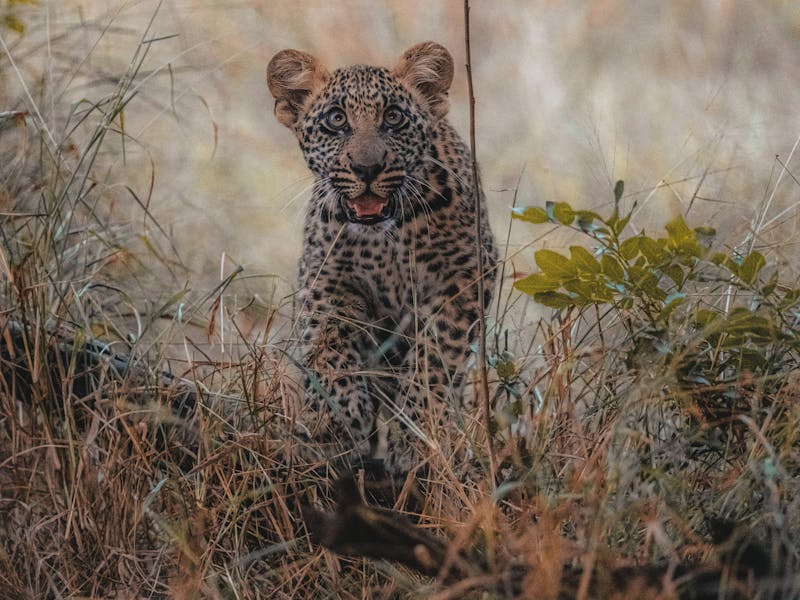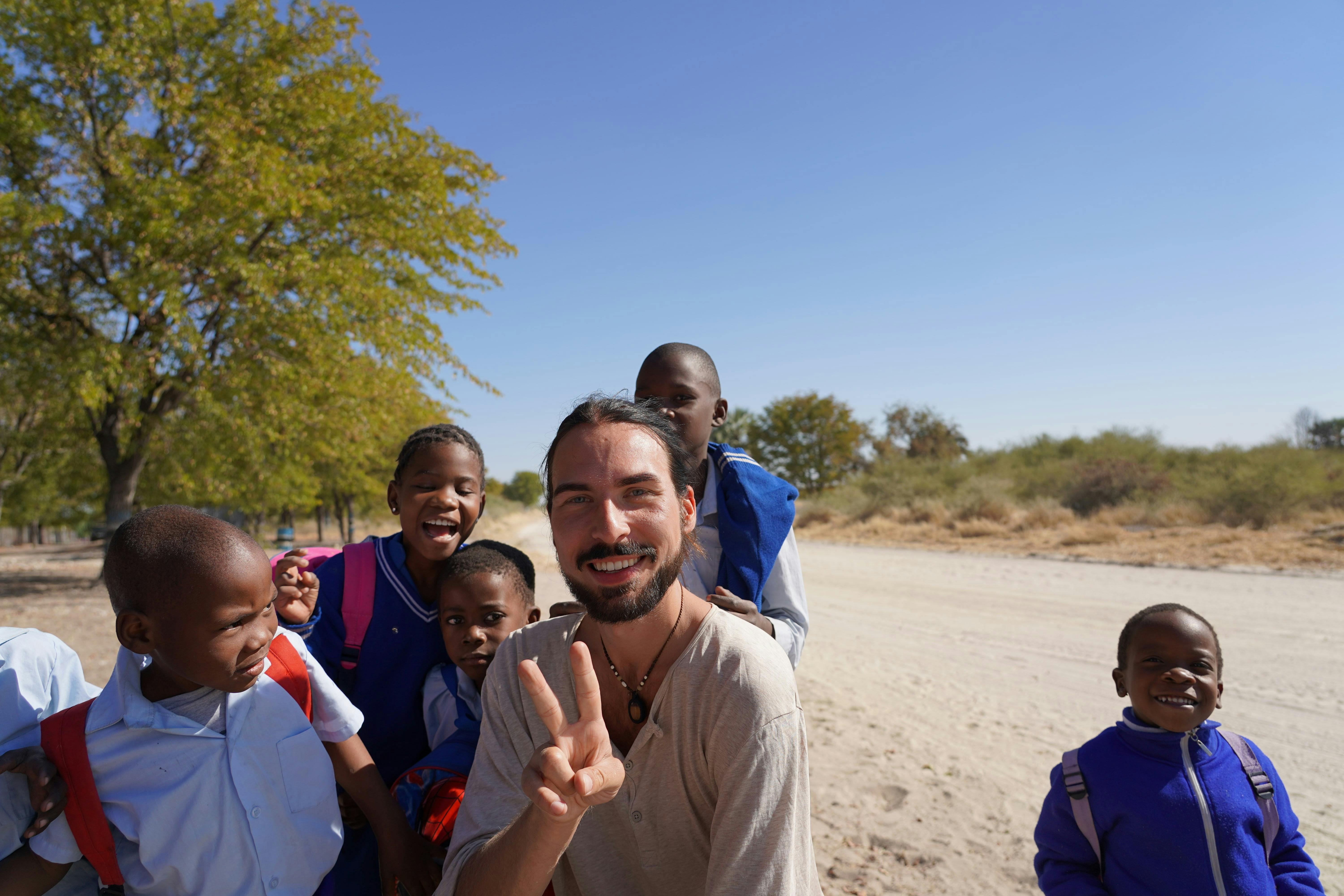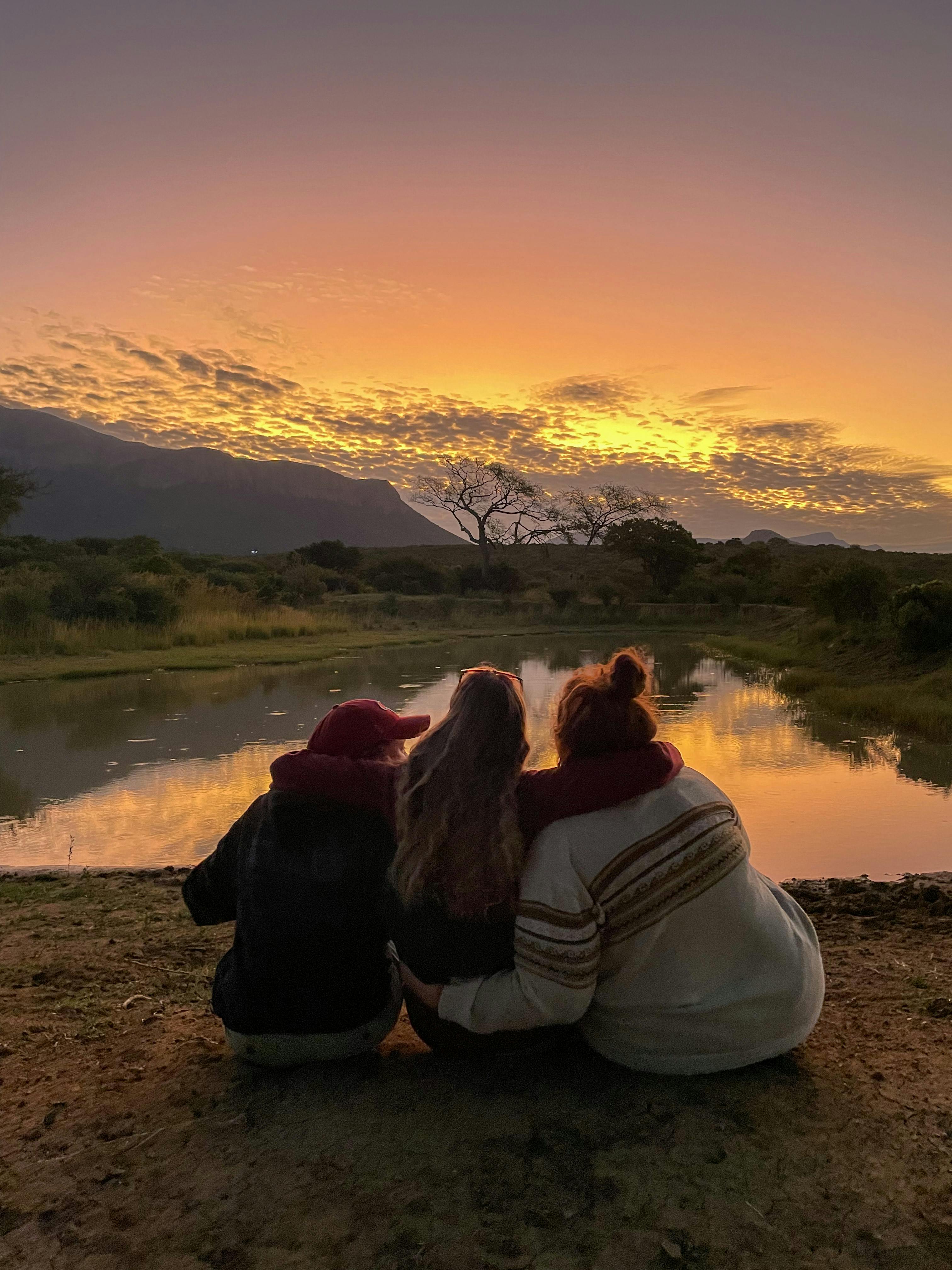WILDLIFE VOLUNTEERING: THE RED FLAGS MOST PEOPLE MISS
Learn more
Useful phrases for volunteers in southern Africa (Quiz)
During your time at one of our many projects in Southern Africa, you’re likely to be exposed to one or more of the many local languages (South Africa alone has 11 official languages). Below is a handy guide to some useful phrases in the languages you’re most likely to encounter while you’re working alongside locals to protect and conserve their natural heritage.
You can also take our quiz at the bottom of the page if you want to test your knowledge!
Afrikaans (southern Africa)
Afrikaans is very widely spoken in Southern Africa and is the language you’re most likely to encounter during your time on many of our projects. Many people involved in conservation speak some Afrikaans, even if it is not their first language, and so the following phrases are very likely to be useful to you during your time in Africa no matter where you are.
- Good morning – Goeie more
- Hello – Haai
- How are you? – Hoe gaan dit?
- I’m fine thanks – Goed dankie
- What is your name? – Wat is jou naam?
- My name is… – My naam is…
- Thank you – Dankie
- See you later – Totsiens
- Good night – Goeie nag
- How much does this cost? – Hoeveel kos dit?
- Excuse me -Ekskies
- I’m thirsty – Ek is dors
- I’m hungry – Ek is honger
- Look – Kyk
- Listen – Luister
- Go – Gaan
- Come – Kom
- Yes – Ja
- No – Nee
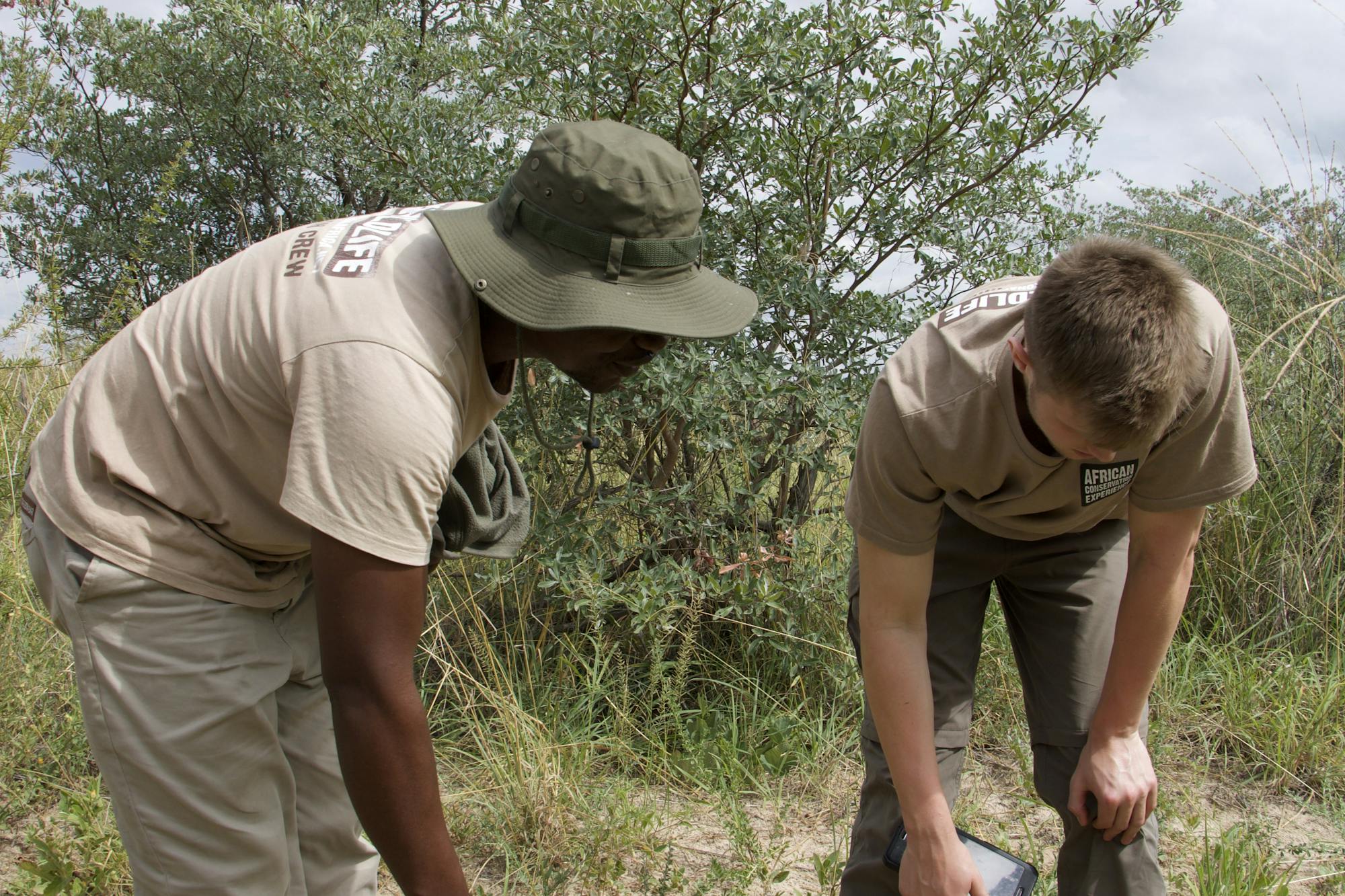
Tsonga / Shangaan (Greater Kruger)
We have several projects in and around the Greater Kruger National Park, including wildlife research and management projects, wildlife rehabilitation projects and wildlife veterinary projects. In this part of the world, one of the most commonly spoken languages is Tsonga (also known as Shangaan). If you’re going to be joining a project in this area, then a few of these Tsonga phrases might well be useful to you and will definitely endear you to Tsonga speakers you encounter there!
- Good morning – Avuxeni
- Hello – Xewani
- How are you? – Kunjhani?
- I am fine – Ni Kona / Ndzi kona
- What’s your name? – Hi weni mani vito
- My name is… – Hi mina
- Good night – U etlela kahle
- Goodbye – Sala kahle (stay well) / Famba kahle (go well)
- Yes – Ina
- No – E-e
- How much is this? – Xana i malimuni?
- Please – Ndza Kombela
- Thank you – Ndza nkhensa
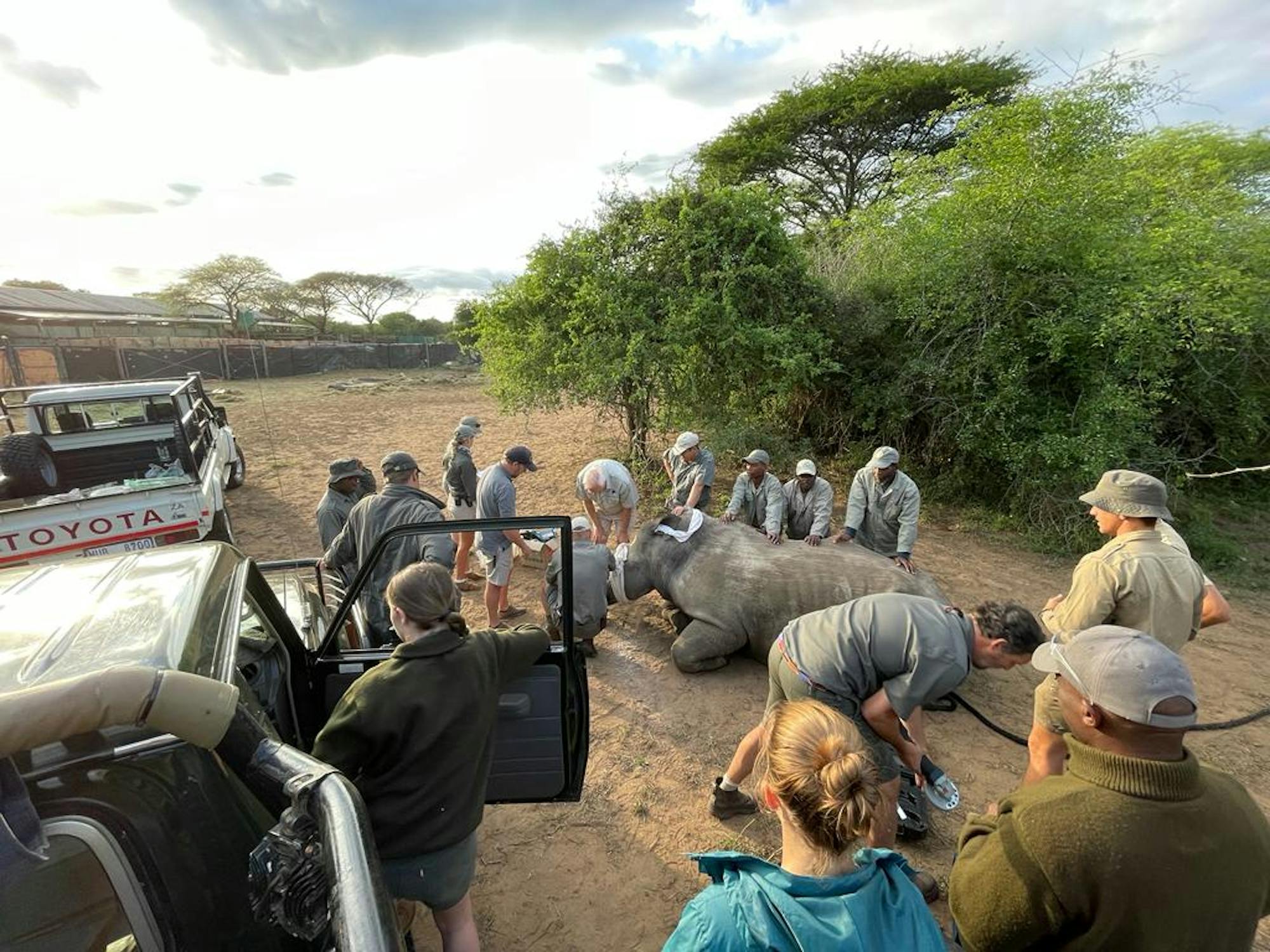
Zulu (Phinda)
Zulu is another very commonly spoken language across large parts of Southern Africa, and the Zulu tribe is one of the largest and best-known of South Africa’s many ethnic groups. Zulu will be most useful to you if you’re volunteering in Africa, especially at our Phinda Wildlife Research Project, but it is also useful more broadly because it is so close to the other Nguni languages, of which there are several. If you look closely you will notice some similarities between some of the Zulu, Tsonga and Shangaan phrases for this very reason.
- Hello / good morning – Sawubona
- How are you? – Unjani?
- I am fine, thank you – Ngikhona, ngiyabonga.
- What’s your name? – Ngubani igama lakho?
- My name is… – Igama lam ngu…
- Good night – Lala kahle
- Goodbye – Sala kahle (stay well) / Hamba kahle (go well)
- Yes – Yebo
- No – Eikona
- I don’t know – Angazi
- Excuse me – Uxolo
- Thank you – Ngiyabonga
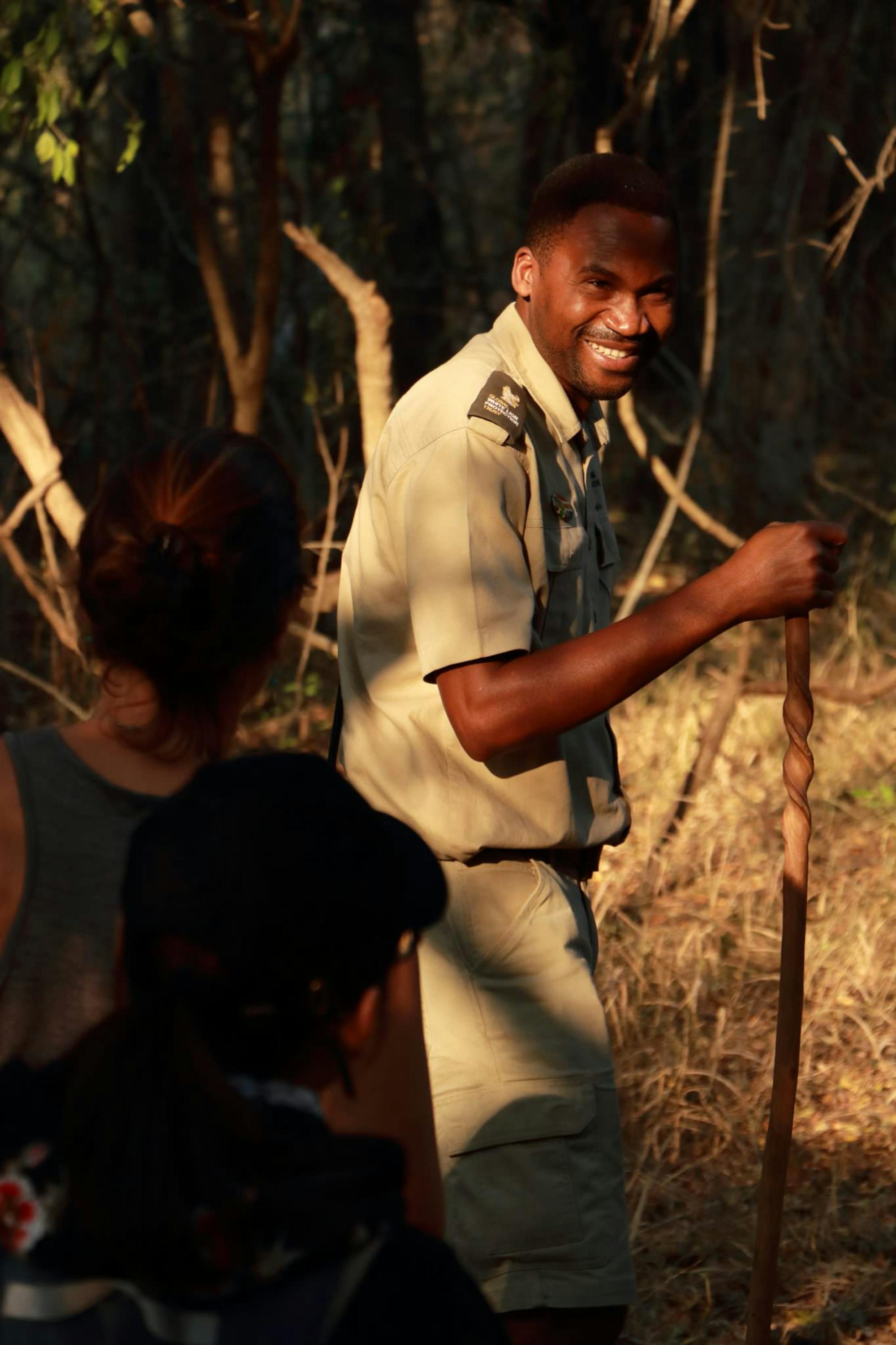
Setswana (Botswana)
Setswana is the most commonly spoken language of Botswana, where it is the second official language alongside English. You’ll want to brush up on some of these useful phrases if you’re joining our Okavango Wilderness Project in particular. You’ll be amazed at the response you’ll get if you greet a Motswana in his or her mother tongue too – so don’t be put off by the sometimes tricky pronunciation! More often than not you’ll find people very happy to help you master these and other simple phrases.
- Hello – Dumela rra (m) / mma (f)
- How are you? – Le kae?
- I am fine – Re teng
- What’s your name? – O mang?
- My name is… – Leina la me ke…
- Good night – Boroko!
- Goodbye – Sala sentle (stay well) / Tsamaya sentle (go well)
- I don’t know – Ga ke itse sepe
- Excuse me – Intshwarele
- How much is this? – E ke bokae
- Please – Tswee-tswee
- Thank you – Ke a leboga, rra (m) / mma (f)
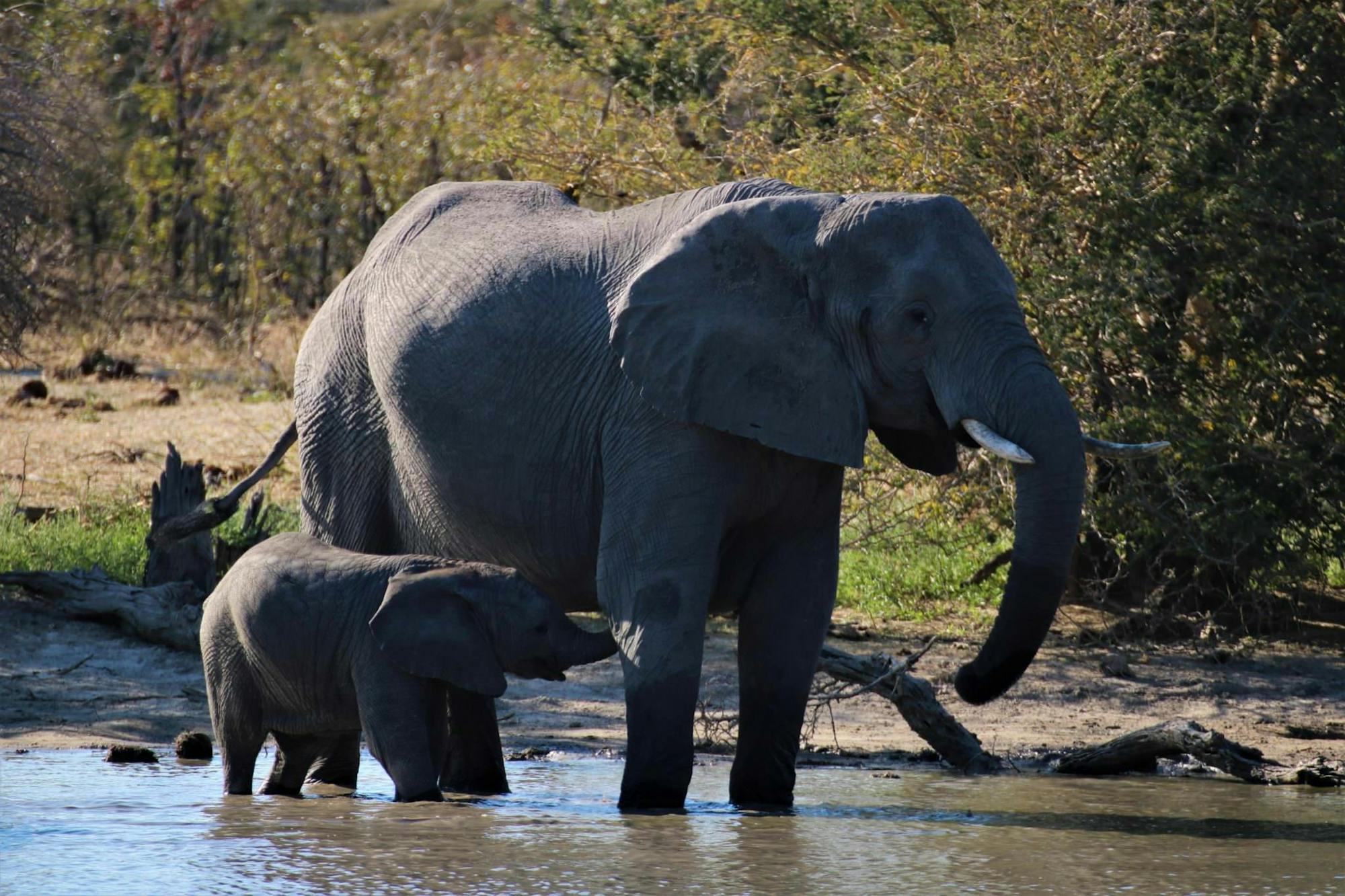
Animal names
You’ll be doing more than spending time in camp greeting people during your time in Africa though, so we’ve also included a useful list of some of the animals you’re most likely to see and work with. Master these and there are plenty more for you to learn in the best place of all – the field!
Lion
- English: Lion
- Afrikaans: leeu
- Zulu: ibhubesi
- Tsonga: ngala
- Setswana: tau
Leopard
- English: Leopard
- Afrikaans: luiperd
- Zulu: ingwe
- Tsonga: ingwe
- Setswana: nkwe
Elephant
- English: Elephant
- Afrikaans: olifant
- Zulu: indlovu
- Tsonga: njovu
- Setswana: tlou
Rhino
- English: Rhino
- Afrikaans: renoster
- Zulu: ihhino
- Tsonga: mhelembe
- Setswana: tshukudu
Buffalo
- English: Buffalo
- Afrikaans: buffel
- Zulu: inyathi
- Tsonga: inyathi
- Setswana: nare
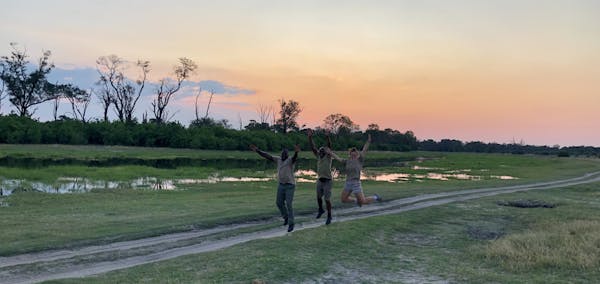
African language quiz questions and answers
How many official languages are there in South Africa?
11
How do you say 'thank you' in Afrikaans?
Dankie
Where are you most likely to find Tsonga speakers?
Greater Kruger
How do you say 'Hello' in Zulu?
Sawubona
What is the Setswana word for Leopard?
Nkwe
What is the Zulu word for Buffalo?
Inyathi
What is the Tsonga word for Elephant?
Njovu
Which of these are not one of the Big 5?
Hippo





